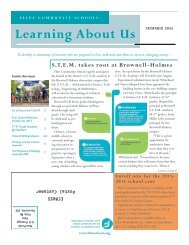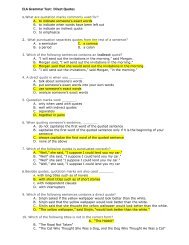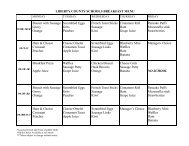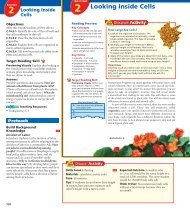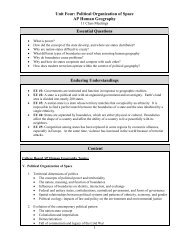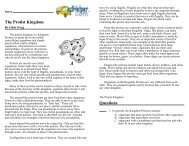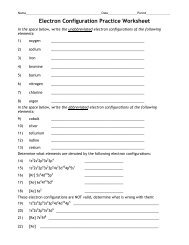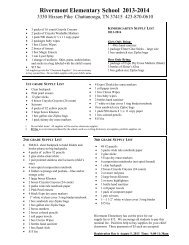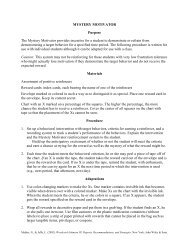The First Civilizations - Baby's First Year
The First Civilizations - Baby's First Year
The First Civilizations - Baby's First Year
You also want an ePaper? Increase the reach of your titles
YUMPU automatically turns print PDFs into web optimized ePapers that Google loves.
Copyright © by <strong>The</strong> McGraw-Hill Companies, Inc.<br />
Name Date Class<br />
READING ESSENTIALS AND STUDY GUIDE 1-1<br />
Early Humans For use with pages 8–15<br />
Key Terms<br />
historian: a person who studies and writes about the human past (page 9)<br />
archaeologist: a scientist who digs up clues about the past (page 9)<br />
artifact: a weapon, tool, or other item made by humans (page 9)<br />
fossil: traces of plants or animals that have been preserved in rock (page 9)<br />
anthropologist: a scientist who studies how humans and their societies<br />
develop (page 9)<br />
nomad: a person who regularly moves from place to place (page 10)<br />
technology: tools and methods that help humans perform tasks (page 11)<br />
domesticate: to tame plants or animals for human use (page 13)<br />
specialization: a practice in which different people focus on different jobs<br />
(page 15)<br />
Drawing From Experience<br />
You know that certain jobs—computer technician, athlete,<br />
salesperson—often require traveling from place to<br />
place. But can you imagine an entire community that<br />
moved several times a year?<br />
In this section, you will learn why bands of people<br />
once roamed the land—and what enabled them to finally<br />
settle down.<br />
Organizing Your Thoughts<br />
Use the following cause-and-effect chart to track how<br />
early humans adapted to their environment. Use details<br />
from the text to help you fill in each blank.<br />
Cause Effect<br />
1. Because people hunted and<br />
gathered . . .<br />
...Paleolithic<br />
2. Fire was a life-changing ...fire provided<br />
development because . . .<br />
3. After people learned how to ...they were able to<br />
grow food . . .<br />
4. Because not everyone was ...some people specialized<br />
needed for farming . . .<br />
1



